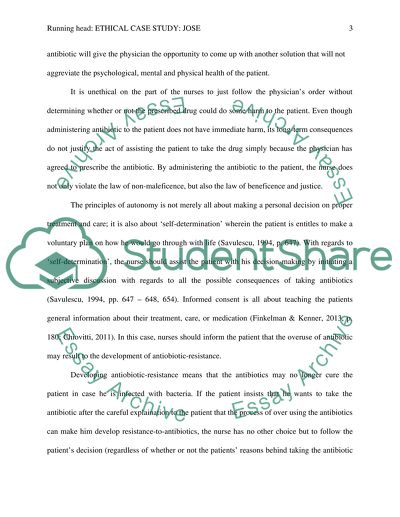Ethical Case Study: Jose Essay Example | Topics and Well Written Essays - 750 words. Retrieved from https://studentshare.org/nursing/1459269-ethical-case-study-jose
Ethical Case Study: Jose Essay Example | Topics and Well Written Essays - 750 Words. https://studentshare.org/nursing/1459269-ethical-case-study-jose.


